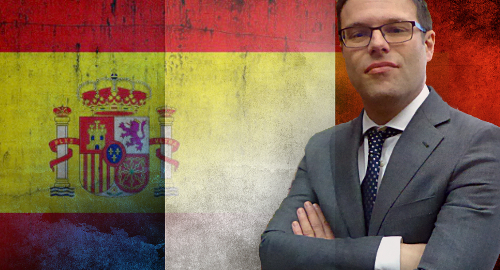 Spain and France have taken another step toward shared online poker liquidity following the official publication of Spain’s new regulations.
Spain and France have taken another step toward shared online poker liquidity following the official publication of Spain’s new regulations.
On Monday, Spain’s Official State Gazette published the resolution signed on December 29 by Spanish gaming regulator Dirección General de Ordenación del Juego (DGOJ) authorizing online poker liquidity sharing between state-licensed operators in Spain, France, Italy and Portugal.
The resolution notes that the new inter-jurisdictional agreement shall enter into force on the day after its publication, which would make Tuesday, January 16 the official D-Day of European online poker pool-sharing, although the actual process isn’t likely to begin immediately due to the need to obtain technical approvals.
The Stars Group’s Spanish-licensed PokerStars.es will undoubtedly be the first operator to dive into this pool, with PokerStars.fr having already been issued a cross-border license from French regulator ARJEL.
The online poker markets in both Spain and France have recently shown flickers of life following a long decline, although this is largely due to the growth on online tournaments, as cash games figures continue to slide (at least in Spain).
In a recent interview with Casino News Daily, DGOJ director Juan Espinosa Garcia (pictured) sought to temper expectations of shared liquidity providing an immediate boost to locally licensed poker operators. Garcia claimed it was “necessary to give some time for the poker markets to adapt to the new reality.”
That said, Garcia is confident that the long-term benefits of shared liquidity will ultimately convince other European Union regulated markets to join the four first-mover countries.
Portugal has offered little guidance on its progress towards joining France and Spain, while Italy’s commitment to the cause is in doubt after some local senators raised discredited concerns regarding money laundering. Garcia dismissed these arguments, saying “from a substantive perspective the scheme should really be as strong as a ring-fenced national liquidity situation.”
The DGOJ has also mulled liquidity sharing deals for non-poker verticals ‘in which the number of players is key to determine the prize, such as online bingo or mutual [exchange] bets.” However, these plans will be subject to the same type of “methodical evaluation and study” to ensure regulators, operators and the public all derive some benefit.